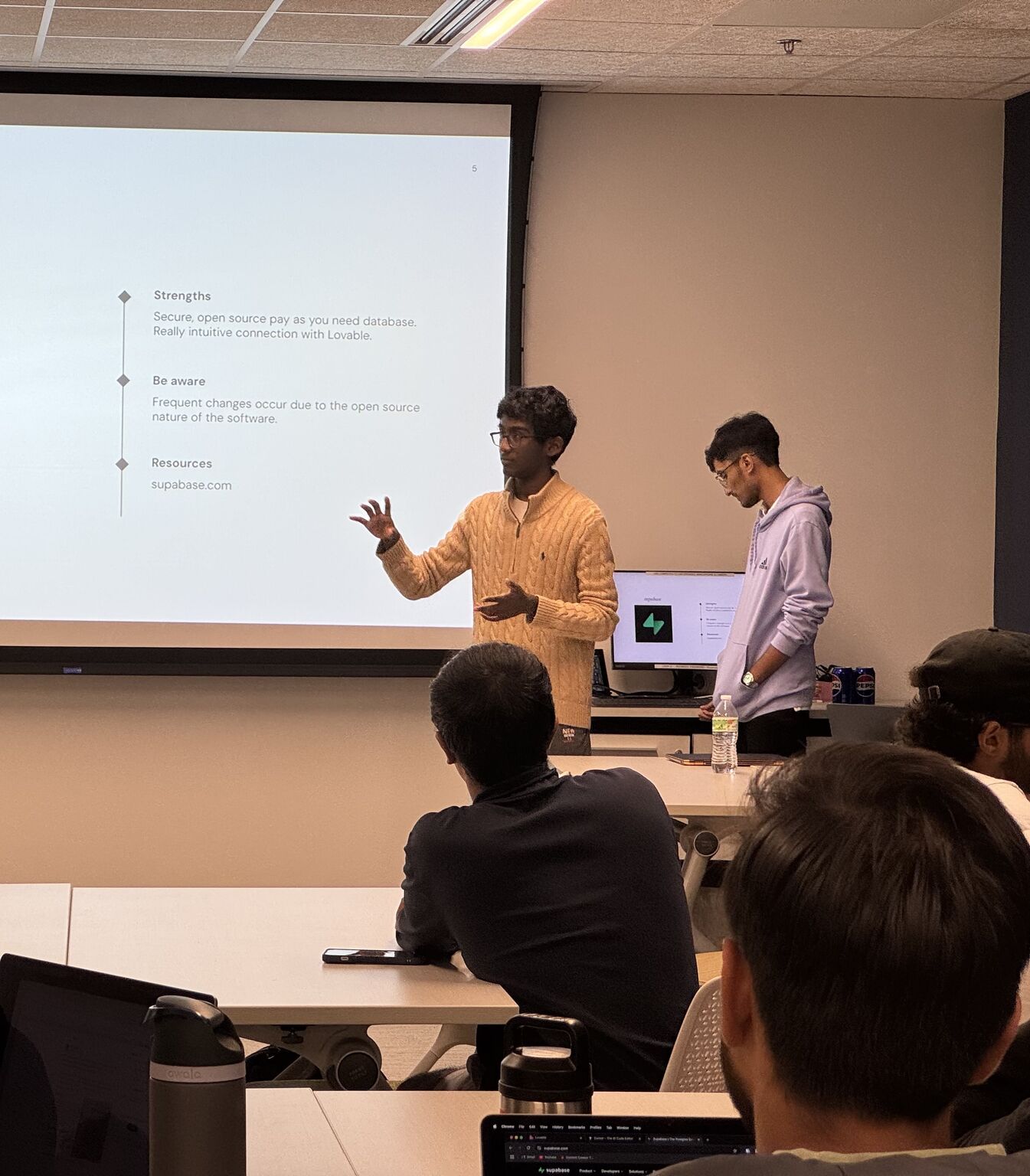AI Development Tools for Startup Founders: Opportunities and Limitations
This article is adapted from a session led by the founders of Altius at the Launch Chapel Hill accelerator at UNC Chapel Hill.

Artificial intelligence is rapidly changing how startups are built. Tools like Cursor, Lovable, and others give founders unprecedented leverage, letting small teams ship products faster, explore more ideas, and compete at levels that once required much larger engineering teams. But as with any breakthrough, there are both opportunities and limitations to consider before weaving these tools into your company's foundation.
Opportunities
1. Speed to Market
AI-powered coding assistants dramatically reduce the time needed to develop an MVP. Founders can move from idea to prototype in days instead of months, which is critical for testing product-market fit early. Tools like Cursor streamline debugging and boilerplate creation, freeing teams to focus on unique business logic.
2. Lower Development Costs
For bootstrapped founders, hiring a full engineering team is often out of reach. AI tools allow lean teams—or even solo founders without deep technical backgrounds—to build functional apps, websites, and integrations at a fraction of the cost.
3. Enhanced Creativity
Lovable and similar platforms can act like a brainstorming partner, suggesting features, design improvements, or even product pivots. This "augmented creativity" helps founders explore more ideas than traditional workflows would allow.
4. Bridging Technical Gaps
Non-technical founders often struggle to translate vision into code. AI tools can act as an interpreter, helping them prototype ideas without waiting on technical co-founders or contractors. This creates opportunities for faster iteration and clearer communication with future engineering hires.
Limitations and Considerations
1. Code Quality and Maintainability
AI-generated code can be efficient for short-term builds, but it often lacks the structure and best practices required for long-term scalability. Over-reliance may result in technical debt that becomes costly to fix as the startup grows.
2. Security and Compliance Risks
Founders must be cautious about data privacy and security when using AI-assisted code. Sensitive logic, customer data handling, and compliance-related code (e.g., healthcare or finance) require careful human oversight.
3. Overconfidence in Automation
It's easy to assume AI tools can fully replace skilled engineers, but they function best as accelerators, not replacements. Founders risk underestimating the need for experienced developers to ensure code is robust, scalable, and secure.
4. Dependence on Proprietary Tools
Building core infrastructure on top of AI tools creates a reliance on third-party providers. If pricing changes, features are limited, or the service sunsets, startups may face painful transitions.
5. Cultural and Team Dynamics
For startups with technical teams, heavy reliance on AI assistants can shift dynamics—sometimes creating tension around productivity expectations or reducing opportunities for junior developers to learn foundational skills.
The Balanced Approach
For founders, the key is strategic adoption. AI tools should be used to:
- Prototype quickly for validation.
- Automate repetitive coding and infrastructure tasks.
- Enhance team creativity and problem-solving.
But they shouldn't fully replace human oversight, architecture planning, and long-term product engineering. Successful startups will blend the speed of AI-driven development with the rigor of experienced technical leadership.
Conclusion
AI development tools like Cursor and Lovable are reshaping the startup landscape. They allow small teams to compete faster, cheaper, and with greater creativity. Yet, these opportunities come with trade-offs—code quality, security, dependence, and team dynamics all demand thoughtful consideration.
For startup founders, the best path is not to reject or blindly embrace these tools, but to use them deliberately: as multipliers of human talent, not substitutes.
